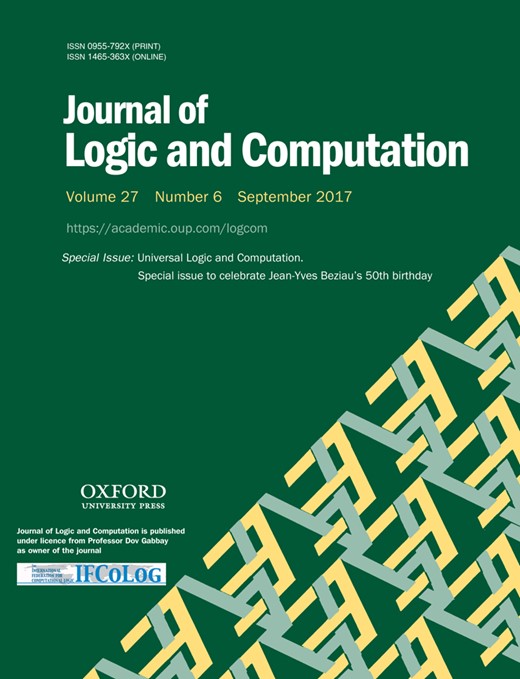-
Views
-
Cite
Cite
Răzvan Diaconescu, Universal logic and computation, Journal of Logic and Computation, Volume 27, Issue 6, September 2017, Pages 1677–1678, https://doi.org/10.1093/logcom/exx028
Close - Share Icon Share
Extract
This special issue contains papers related to Universal Logic and Computation. The work on this special issue started about three years ago with the intention to dedicate it to Jean-Yves Béziau on the occasion of his 50th anniversary which actually took place a couple of years ago in the middle of the process of preparing this special issue. I think even now it is not too late to dedicate it to Jean-Yves, who has been and still is a main promoter of this quite revolutionary new trend in logic, known as Universal Logic. He has done this especially by building from scratch a quite amazing academic infrastructure in support of Universal Logic. This includes a dedicated World Congress and School (until now there have been five such events), a book series (Studies in Universal Logic, Springer Basel) and a journal (Logica Universalis, Springer Basel).
Although Universal Logic has been clearly recognized as a trend in mathematical logic since about one decade only, it had a presence here and there since much longer. Universal Logic ideas can be traced back to the work of Paul Herz in 1922. In fact there is a whole string of famous names in logic that have been involved with Universal Logic in the last century, including Paul Bernays, Kurt Gödel, Alfred Tarski, Haskell Curry, Jerzy Łoś, Roman Suszko, Saul Kripke, Dana Scott, Dov Gabbay, etc. Universal Logic is not a new super-logic, but it is rather a body of general theories of logical structures, similarly, universal algebra is a general theory of algebraic structures. Within the last century mathematical logic has witnessed the birth of a multitude of unconventional logical systems, such as intuitionistic, modal, multiple valued, paraconsistent, non-monotonic logics, etc. Moreover, a big number of new logical systems have appeared in computer science, especially in the area of formal methods. The universal logic trend constitutes a response to this new multiplicity by the development of general concepts and methods applicable to a great variety of logical systems.



